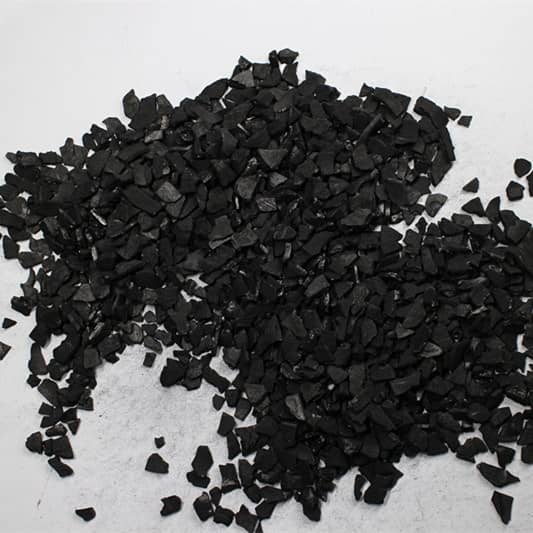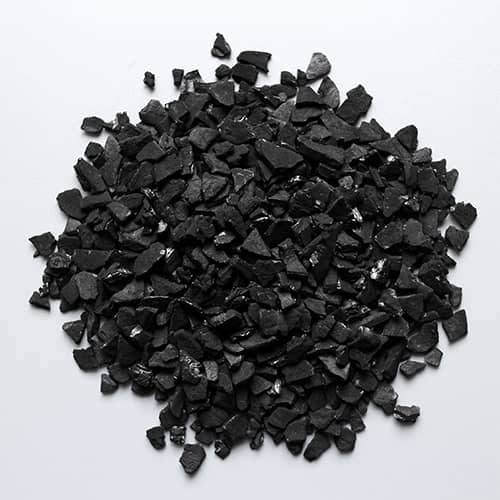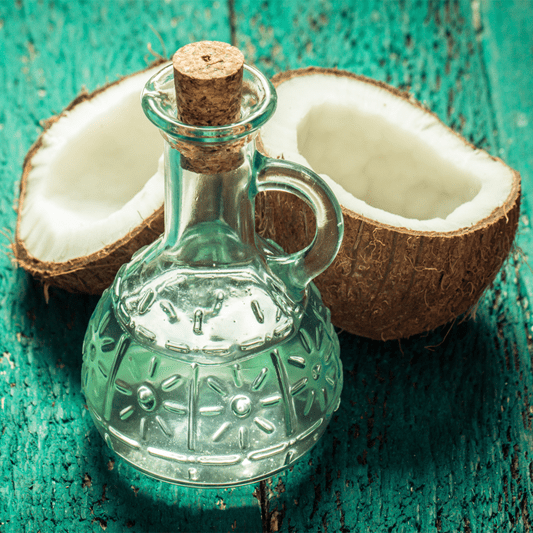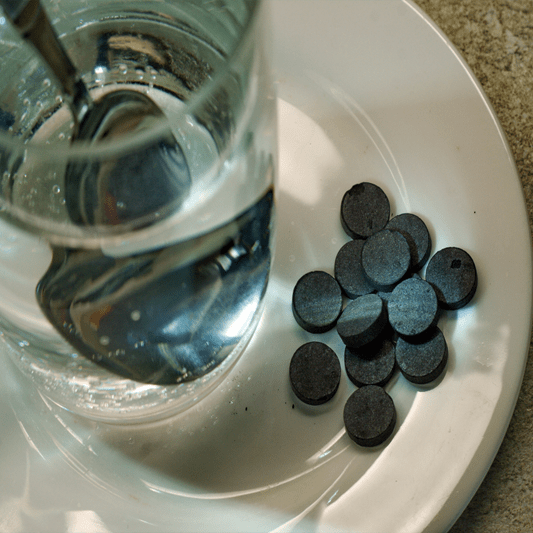
Coconut Shell Activated Carbon Manufacturer
As a leading coconut shell activated carbon manufacturer in the industry, Karbonous Inc. manufactures coconut shell activated carbon through high-temperature and high-pressure steam in order to create a unique pore structure to obtain maximum adsorption efficiency.
Coconut shell activated carbon consists of micropores that have a much higher capacity to adsorb small molecular compounds. Besides, we also deal with coconut shell activated carbon water filters.
The high pore volume results in a higher surface area, attracting more contaminants, which results in longer run-time with coconut shell activated carbon.
Features and Benefits of Coconut Shell Activated Carbon
- High surface area and large pore volume with efficient VOC removal
- Long run-time due to high adsorption efficiency
- Low ash content and impurities
- Ideal for chloramine removal
- Taste and odor control
- Wide range of mesh sizes for various applications
Coconut Shell Activated Carbon Suppliers in California
| PSC816 (8 x 16 ) |
| PSC820 (8 x 20) |
| PSC830 (8 x 30) |
| PSC1230 (12 x 30) |
| PSC1240 (12 x 40) |
| PSC830 AW (8 x 30 Acid Washed) |
| PSC1240 AW (12 x40 Acid Washed) |
| PSC1230 AW (12 x 30 Acid Washed) |
| PSC46 (4 x 6) |
| PSC48 (4 x 8) |
| PSC410 (4 x10) |
| PAC325-CS800 ( Powdered Carbon ) |
| PAC325-CS500 ( Powdered Carbon) |


Coconut Shell Activated Carbon Water Filter At Karbonous Can Meet All Your Requirements
The hydrophobicity of the contaminating molecule may cause adsorption of the contamination from the water on the activated carbon surface. It might also be due to the contaminating molecule’s affinity for carbon, or a combination of the two.
A hydrophobic material binds considerably better to the carbon surface than a hydrophilic one. The majority of organic pollutants found in drinking water are hydrophobic. They have a strong bond with the non-polar carbon surface of pores. Many VOCs, pesticides and herbicides, disinfection by-products as Tri halo methane, and other organic pollutants may be removed with activated carbon.
Why Is Coconut Shell Activated Carbon Water Filter the Industry’s Most Popular Choice?
The pores of activated carbon from coconut shells are mostly in the micro-pore range. Micro-pores cover around 85-90 percent of the surface area of coconut shell activated carbon. Because the size of pollutant molecules in drinking water matches that of these tiny holes, they are highly efficient at trapping them.
The majority of the holes in peat and wood activated carbon are meso and macro-pores, which are ideal for trapping larger molecules. Coal carbons have a pore structure that is halfway between coconut shells and wood-based carbons.
Macro-pores are thought to be a gateway to micro-pores. Unless the surface area of the holes is enormous, 400 m2/g or more, mesopores do not generally play a significant role in adsorption.
Coconut shell carbon has a tight structure with a lot of micro-pores, which gives it good mechanical strength and hardness, as well as a lot of resistance to attrition and friction wear.


Other aspects that carbon companies consider to be significant advantages for coconut carbon include:
- Coconuts grow all year, with harvesting taking place three to four times a year.
- Coconut is a carbon-renewable resource.
- Coconut trees may be kept for a long time.
As previously stated, activated carbon plays a crucial function in the filtration of drinking water. To summary, activated carbon highlights the following:
- Adsorbs THM and other disinfection by-products..
- Adsorbs volatile organic compounds (VOCs)..
- Removes pesticides and herbicides from the environment.
- Halogens are removed from water.
- Enhances the look of drinking water
- Enhances the flavor of water
Since we are also renowned and premium activated coconut carbon supplier, we offer custom sizes available upon request and please contact our sales representative for more information.
Why Residential and Industrial Sector Prefer to Use Coconut Shell Activated Carbon?
Each raw material forms a porous network with pores of varying sizes. Because its small micropores match the size of most water-based pollutants, activated carbon produced from coconut shells is suitable for water filtration.
What Is the Precise Procedure to Manufacture Activated Carbon from Coconut Shells?
In a low-oxygen environment, the naturally carbon-rich shells are slowly heated to a very high temperature. It eliminates water and contaminants from the shells without causing them to burn. A number of chemical and/or physical procedures are used to activate the resultant substance, known as char. These activation mechanisms greatly increase the surface area and result in the formation of a porous network.
The activated carbon is then powdered, granulated, or extruded into the required shape. Particles tiny enough to pass through an 80 mesh filter make up powdered activated carbon. Granular particles are somewhat bigger and come in a variety of sizes. Granular activated carbon is combined with a binder and pushed through a pellet machine to create extruded activated carbon. Each kind is best suited to a certain purpose. If desired, the activated carbon is impregnated with one or more compounds.
Ready to Get Started?
Please contact Karbonous Inc immediately to understand how we can provide you with activated carbon and professional advice on which product to select depending on your needs and requirements and how to utilize it efficiently.
